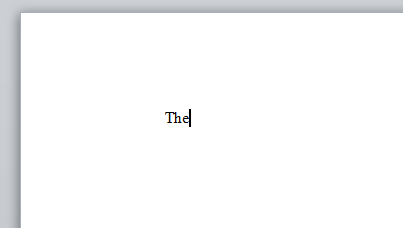and neither is Shayla Poling
So you've got this plot in mind. A full-grown plot, mind you, not just a fetal idea, half-formed and unable to survive outside the bounds of your nurturing brain.
Don't get attached. There are those who want to see your plot completely and totally derailed. They'll stop at nothing to dismantle everything you've built over days or weeks of planning and prewriting. These people? Your characters.
"But my characters aren't real!" you may be shouting at your monitor, completely disregarding the futility of this act. "They can't control me! I control them! I AM THEIR GOD!"
No, my friend, no you are not.
 |
| Also, maybe stop yelling at your electronics. It's weird. |
Writing is an act of evolution, not intelligent design. Plot evolves as you write it, growing limbs in places you didn't expect and stepping across the boundaries of genre just as the first footed creatures waddled out of the sea.
 |
| Pokemon has taught us that evolution can be a little extreme. |
 |
| AZULA ALWAYS LIES, ZUKO. WE COVERED THIS. |
Fueling your plot with stupid leaves a pretty hefty signature, enough to pollute your reader's enjoyment—and belief in your world and the events taking place within it—permanently. Don't make your readers roll their eyes.
Like a mother bird, an author must sometimes shove its fledgling cast members from the nest and hope they flap themselves on course. Their path may be a little circuitous, but if you've crafted characters who fit your story and, more importantly, your world, they'll make their way to a conclusion. Eventually. After many unexpected—but nonetheless important—detours.
Respect your characters. Let them make mistakes, but don't force mistakes upon them. Back up characterization with scenes that will let your characters display their strengths and weaknesses. Provide the setting, provide the conflict, then let them improvise. It might not work out, but that's what editing is for.
Editing is also for ruining your life and damaging your self-confidence, but we'll cover that in a separate post.






